Today, I would like to share with you an important news: "They discover that a small group of neurons controls the insulin that releases the pancreas".
Spanish researchers at the Pi i Sunyer Biomedical Research Institute (Idibaps) at the Hospital Clínic and the Biomedical Research Institute (IRB) in Barcelona have discovered that a small group of neurons modulates the amount of insulin released by the pancreas.
The work, which emphasises the importance of neuronal mechanisms in nutrient detection and control of glucose levels, is a new advance, in diabetes research and its findings, are published in the journal “Cell Metabolism”.
The research has revealed that there is a small group of hypothalamus neurons, called POMC, that detect and integrate signals that inform the energy state of the body and activate physiological responses, and are sensitive to fluctuations, in nutrients such as glucose, fatty acids or amino acids.
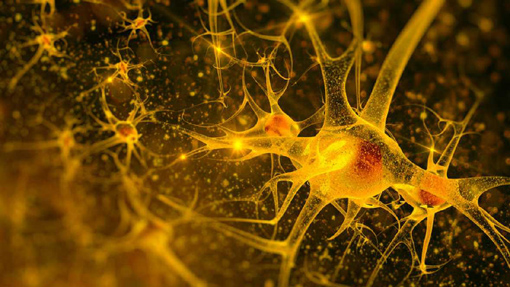
Network of POMC neurons
The work, co-directed by Marc Claret (Idibaps) and Antonio Zorzano (IRB), both members of the CIBERDEM network, reveals the connection between hypothalamic POMC neurons and the release of insulin, by the pancreas, and describes new molecular mechanisms involved in this connection.
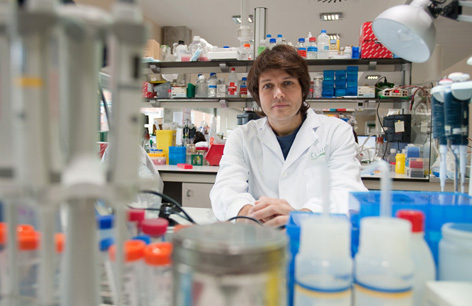
Marc Claret
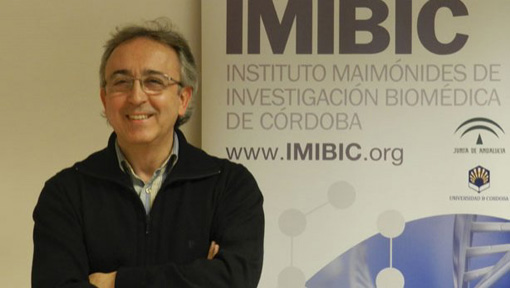
Antonio Zorzano
As Zorzano has explained, until now it was known that POMC neurons detect changes, in the availability of nutrients, but the molecular mechanisms involved are unknown, in detail.
It was also known that changes, in the shape of mitochondria, a phenomenon known as “mitochondrial dynamics”, constitute a mechanism of energy adaptation, in changing metabolic conditions, to adjust the needs of cells.
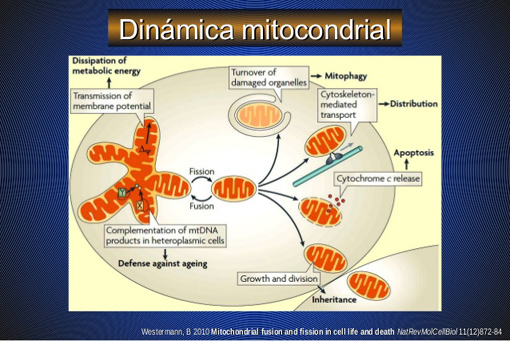
Mitochondrial dynamics
To find out if defects, in the mitochondrial dynamics of this small nucleus of neurons, could cause metabolic alterations, the researchers removed a mitochondrial dynamics protein, the mitofusin 1, from POMC neurons, in mice.
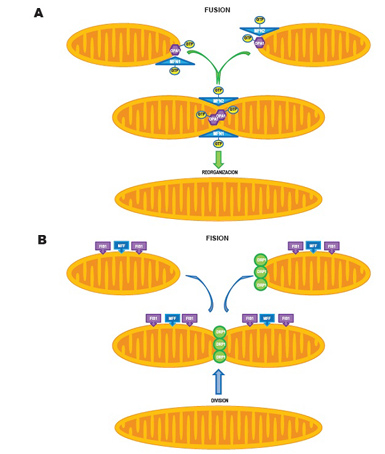
Mitofusin 1, inside a blue triangle on the left side (MFN 1)
Thus, scientists observed that these mice were altered in detecting glucose levels and adapting between the fasting state and after being fed, and they saw that these defects lead to disturbances, in glucose metabolism, caused by a lower insulin secretion.
"It was surprising to find that these neurons are not only involved in controlling intakes, but also involved in controlling the amount of insulin, secreted by beta cells, in the pancreas", Zorzano said, who is the head of the Laboratory of Complex Metabolic Diseases and Mitochondria of the IRB.
The research has allowed the researchers to observe, for the first time, that this communication, between hypothalamus and pancreas, depends on the activity of the protein mitofusina 1 and to understand some molecular details of this connection.
Marc Claret, head of the Neuronal Metabolism Control Group at Idibaps, explained that "our results also suggest pathological implications of this animal model, since a diet, rich in fats, makes these mice more susceptible to developing diabetes".
Patients with diabetes type 2, who suffer from 85% of people with diabetes, have fewer beta cells and less ability to secrete insulin, in response to glucose.
"Understanding the mechanisms, involved in regulating insulin, is important and therefore it helps us to better understand the pathophysiology of diabetes", said Claret, who acknowledged that "much research still needs to be done, to apply the findings , since we are talking about neural mechanisms of complex intervention".
Researchers from the University of Yale (USA), the University of Geneva (Switzerland), the University of Barcelona, the Paul Sabatier University in Toulouse (France), the Virgen del Rocío Hospital in Seville, the University of Santiago de Compostela, the Institute of Biomedical Research of Bellvitge, the University of Veterinary Medicine of Hungary and the Clinical Hospital of Barcelona have also collaborated in this study.
Well, I think the problem of Diabetes is a very important problem, all over the world, and any progress, in this sense, I think has much merit, by the researchers. That is why I encourage all researchers to continue to study each disease.
I hope that you have liked this article, such as I have.
Until my next post, kind regards,
Luis.
Sponsored by Costaluz Lawyers.
Please click below:
